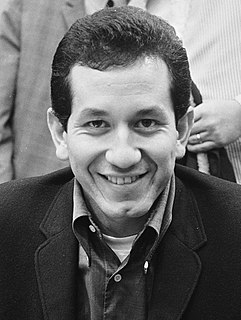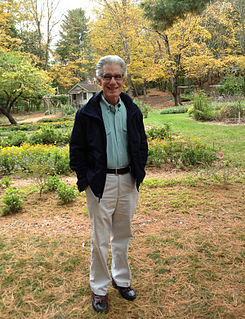A Quote by Alan Hollinghurst
The great wisdom for writers, perhaps for everybody, is to come to understand to be at one with their own tempo.
Quote Topics
Related Quotes
Everybody recommended me to Sinatra and Don Costa, because everybody was enjoying my music. I got a big following going on. Nino (Tempo) told Don Costa "you gotta come see this guy." And that's how Don Costa heard about me, through Nino Tempo. Then, Don Costa brought me to the attention of Frank Sinatra and Reprise Records.
A philosopher is a lover of wisdom, not of knowledge, which for all its great uses ultimately suffers from the crippling effect of ephemerality. All knowledge is transient, linked to the world around it and subject to change as the world changes, whereas wisdom, true wisdom is eternal, immutable. To be philosophical one must love wisdom for its own sake, accept its permanent validity and yet its perpetual irrelevance. It is the fate of the wise to understand the process of history and yet never to shape it.
There are other great writers who are not read properly in their own day for the reason, perhaps, that their readers are not yet born. What they have to say to their own generation is said so at cross-purposes and with such apparent irrelevance that it is not understood. They are, as it were, giants who tower above their own age to cast their shadows across the next.
Why are you uncomfortable with the supernaturalist worldview of the biblical writers? Evangelicals don't want to just say, "Well, the inspired writers were wrong about some of their beliefs about the spiritual world and its inhabitants." That really doesn't work in a confessional situation! So instead we come up with excuses and interpretations that allow us to remake the biblical writers in our own post-Enlightenment image. I understand that impulse, but it's not honest.
I come here because it is fun. I have fun when I come here. I do not come here because I feel that I have any great responsibility for your beings or welfare. Who am I to set myself against the innate wisdom of your own individual being, or to take upon my invisible shoulders the great privilege or joyful responsibility for your behavior and destiny?
Sometimes I see my students, especially the ones with a gift for the lyrical, reaching far outside the realm of their own experience for language and images. I understand this impulse. We think, in the beginning, that striking exotic words together will create something entirely new. That we must be worldly in our vocabulary. We idolize the styles of other writers and don't trust or perhaps yet know our own.
The truth is not that the problem is the newsroom does not understand capitalism. The problem is that the front office does not understand journalism. The problem is not that the average reporter does not understand what it is that's necessary to make the payroll, to make the good edifice, to make the thing that he wants. It is that in fact those who control too many of the edifices have actually come to believe that Wall Street has wisdom, and that that wisdom should instruct our business.
Academic environments are generally characterised by the presence of peole who claim to understand more than in fact they do. Linguistic Philosophy has produced a great revolution, generating people who claim not to understand when in fact they do. Some achieve great virtuosity at it. Any beginner in philosophy can manage not to understand, say, Hegel, but I have heard people who were so advanced that they knew how not to understand writers of such limpid clarity as Bertrand Russell or A.J. Ayer.
I had a friend in college who loved to say: 'If you can dream it, you can do it.' It became my mantra. I assumed it was a pearl of wisdom from some great thinker, a philosopher perhaps, like Descartes. It turned out to be Walt Disney, which in no way diminishes the wisdom of the advice. Anyone who can build a Magic Kingdom deserves to be listened to.







































